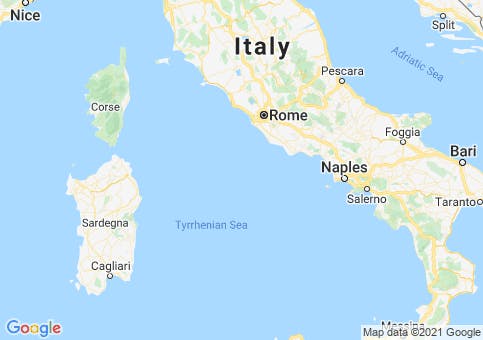Italy is one of the most popular destinations in Europe, and it’s easy to see why. It is a cultural marvel with historical cities and landmarks around every corner, renowned cuisine, a warm climate, and that beautiful, slow pace of life associated with living around the Mediterranean. It’s no wonder people flock to this great nation.
Lucky for any would-be expat, Italy boasts a multitude of different visas, suitable for a wide range of different people and situations. Let’s take a look at some of the most common ones.
Get Your Free Italy Report Today!
Get Your Free Italy Report Today!
Learn more about Italy and other countries in our daily postcard e-letter. Simply enter your email address below and we’ll send you a FREE report – Italy: Europe’s Most Seductive Country.
By submitting your email address, you will receive a free subscription to IL Postcards and special offers from International Living and our affiliates. You can unsubscribe at any time, and we encourage you to read more about our Privacy Policy.
Temporary Visas
Citizens of North America do not need a visa to enter Italy for up to 90 days if the purpose of their trip is tourism- or business-related. For longer stays, a long-term residence permit is required.
Long-Term Visas
Elective Residence Visa (Visa di Residenza Elettiva)
This visa is designed for individuals who wish to live in Italy without working, typically retirees or those who can show proof of substantial, stable, and passive income from pensions, investments, or other non-work-related sources. A minimum annual income of around €31,000 for an individual and €31,000 for a couple is required. The exact amount may vary. Visa holders are not allowed to work in Italy but can manage foreign income sources.
The visa is valid for one year and can be renewed for periods of two years as long as you continue to meet the requirements. After five years, you can apply for a long-term residence permit, i.e., Permanent residency.
Digital Nomad Visa
The visa is available to skilled professionals working remotely for a company or as self-employed individuals in fields such as IT, marketing, consulting, finance, and other professions that can be done remotely. The applicant must work for a company or clients outside of Italy. Digital nomads cannot take up employment with Italian companies unless they obtain a separate work visa.
Applicants must demonstrate that they have sufficient financial means to support themselves during their stay in Italy. The exact financial requirements have not been explicitly defined yet. Still, it is expected that applicants will need to show a stable income similar to the requirements for other visas like the elective residence visa).
The visa is valid for one year and can be renewed for periods of two years as long as you continue to meet the requirements. After five years, you can apply for a long-term residence permit, i.e., Permanent residency.
The visa allows digital nomads to bring their family members (spouses, children, or dependents) with them to Italy.
Investor Visa
Italy's version of the golden visa is called the investor visa. There are five ways to get this long-term residency permit:
Invest at least €2 million in Italian government bonds.
Invest at least €500,000 in an Italian company.
Invest at least €250,000 in an Italian innovative startup.
Donate at least €1 million to philanthropic causes in Italy.
Present an innovative business plan for a new startup that will be evaluated by a special committee. There are no quotas, and successful applicants must show sufficient financial resources for the business.
Permanent Residency
Italy officially calls its permanent residency a Long-Term EU Residence Permit (Permesso di Soggiorno UE per Soggiornanti di Lungo Periodo). This is not a visa but a permit for individuals who have legally resided in Italy for at least five years with a valid visa. It grants indefinite residency rights in Italy and allows for freedom of movement and residence in other EU countries (under certain conditions).
Getting the long-term residence permit requires proof that you have lived in Italy for five years interrupted, have a clean criminal record, speak Italian to A2 proficiency level, and continue to have enough income to support yourself and your dependents.
Citizenship
After 10 years of legal residency in Italy, you can apply for citizenship by naturalization. In addition to income, a clean criminal record, and other requirements, you must speak Italian to a B1 level and demonstrate integration into Italian society.
For those who can prove Italian ancestry, it's possible to acquire citizenship based on documentation. The process takes between three to six years, depending on the quality of the documentation and the nature of your relationship to your Italian ancestors.
Requirements and Documentation
All Italian visas involve a two-part part process. First, you apply for your desired visa category. Second, once tentatively approved, you can travel to Italy. Once there, you are issued a Permisso de Soggiorno or Permission to Stay. This is a plastic card that you will use as an ID, to get your ID Card and your driver’s license, bank account, and anything else that requires an ID. No additional information is required; it is simply confirmation of your right to remain in Italy as a long-term resident.
Italian visa applications require the following:
Your U.S. Passport
Two to Four Passport photos
Driver’s License(s)
Italian National Visa Application form
A letter stating why you want to come, where you are staying, the length of your stay, and the names of the person(s) accompanying you.
Proof of Residence (address to stay) in Italy
A “Codice Fiscale” or tax number.
Certified Marriage Certificate.
Documentation of proof of substantial and ongoing income, usually with a monthly minimum per person.
Processing Time
The typical processing time for visa applications initiated outside the country is one to three months. Application times may vary depending on the embassy or consulates in question as well as the type of visa you're applying for. People who have been through the process say that when all the steps are taken together, the process usually takes about nine to 12 months.
Cost
Fees to apply for an Italian long-term residency visa vary but are generally around €120. Once in Italy, the Permesso di Soggiornocosts between €80 and 130 euros. Your residence card will cost you €30. There are additional handling fees that add up to about €45. If you choose to work through an immigration attorney or consultant, you can expect to pay between €1,000 and €5,000, plus translation and apostille fees.
Contacts
3000 Whitehaven Street NW, Washington, DC 20008
Tel. (202) 612-4400
Web: https://ambwashingtondc.esteri.it/ambasciata_washington/en/
Consult with Me, One-on-One
My Mission: To Make Your Life Simpler, Safer, and Freer … Not More Complicated
Stop overcomplicating, second-guessing, or giving in to “information paralysis” … Let’s sit down together (online), and I’ll help you create a custom blueprint for your international goals… second passports, tax, travel, retirement, estate, business, and more…
Get Your Free Italy Report Today!
Get Your Free Italy Report Today!
Learn more about Italy and other countries in our daily postcard e-letter. Simply enter your email address below and we’ll send you a FREE report – Italy: Europe’s Most Seductive Country.
By submitting your email address, you will receive a free subscription to IL Postcards and special offers from International Living and our affiliates. You can unsubscribe at any time, and we encourage you to read more about our Privacy Policy.













